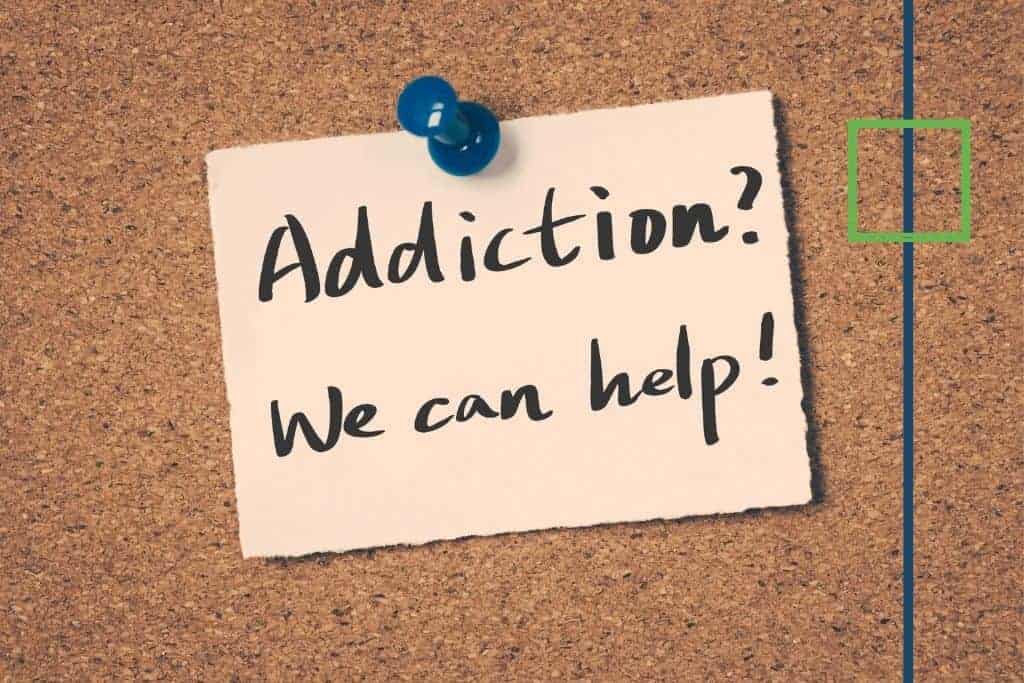What is Heroin Made of?
Heroin is an opioid drug produced from the substance morphine, which naturally occurs in the seed pods of different types of opium plants. This plant is the starting point for the creation of multiple narcotic substances: morphine, opium, codeine, and heroin. There are two major types of heroin currently sold on the streets today: white powder heroin and black tar heroin.
The effects of heroin are very similar for both. Powder heroin is off-white in color and is the purer of the two types of heroin. Making powdered heroin involves refining heroin that has been processed to remove impurities. Black tar heroin is cheaper than other types of heroin because of its crude manufacturing process and its level of purity — most black tar heroin is estimated to only be 30-40% pure.
Substances Used In Heroin
It is extremely rare to find 100% pure heroin sold on the streets today. Most heroin sold will have at least a couple of different components used to make the drug.
Poppy Plants
All forms of heroin are made from opium poppy plants, and more specifically morphine, which is a substance derived from the seed pods of these plants. Poppy plants are grown in Southeast Asia, parts of the Middle East, Latin America, Australia, and parts of Europe.

Cutting Agents
Cutting agents are substances that are added to heroin in order to increase profits for the drug dealer. It is relatively easy to add cutting agents to heroin in its white powder form because there are so many substances that are similar in appearance.
Common cutting agents in white powder heroin include:
- Quinine (antimalarial drug)
- Mannitol (diuretic, can also reduce pressure in the eyes and the brain)
- Inositol (used to treat mental health conditions and diabetes)
- Lidocaine (used to treat irregular heartbeat and relieve pain)
Cutting agents can also be found in black tar heroin. Because of this, black tar heroin can be contaminated with bacteria and cause skin or tissue infections.
Common cutting agents in black tar heroin include:
- Shoe polish
- Dirt
- Rat poison
- Soil
- Anesthetics
Cutting agents can also be found in black tar heroin. Because of this, black tar heroin can be contaminated with bacteria and cause skin or tissue infections.

Get Your Life Back
Find Hope & Recovery. Get Safe Comfortable Detox, Addiction Rehab & Dual Diagnosis High-Quality Care.
Hotline(844) 597-1011Is Heroin a Depressant?
Is heroin a stimulant or a depressant? Most addictive substances fall under these two general classes, stimulants and depressants. The names of both indicate how a person responds to the effects of each type. A stimulant drug amplifies processes in the brain and body. For example, most stimulant substances affect the central nervous system, heightening the release of dopamine to increase a person’s attention, alertness, and energy.
Depressants have the opposite effect. These drugs slow down the central nervous system and all body parts that it controls. They can slow a person’s breathing, heart rate, and brain activity.
Heroin is a central nervous system (CNS) depressant. Like other opioids, it slows down, or depresses, activity in the central nervous system (brain and spinal cord). The drug achieves its effects by binding to mu-opioid receptors in the brain. It also targets the brain’s reward system, leading to a compulsion to take the drug, which can result in heroin addiction.
Is Heroin a Stimulant?
Heroin, a Schedule I illicit opioid, is not a stimulant. In fact, it is the opposite of a stimulant: instead of revving up the central nervous system, heroin suppresses it. Sometimes, heroin is combined with illicit stimulants such as cocaine and taken as a speedball drug. A person may combine the two so that the cocaine combats the sedating effects of heroin.
Get Help. Get Better. Get Your Life Back.
Searching for Accredited Drug and Alcohol Rehab Centers Near You?
Even if you have failed previously and relapsed, or are in the middle of a difficult crisis, we stand ready to support you. Our trusted behavioral health specialists will not give up on you. When you feel ready or just want someone to speak to about therapy alternatives to change your life call us. Even if we cannot assist you, we will lead you to wherever you can get support. There is no obligation. Call our hotline today.
(844) 597-1011
Heroin’s Depressant Properties
Unlike barbiturates, benzodiazepines, and other prescription sedatives that slow brain activity to treat sleep disorders and anxiety, opioids — including heroin — affect brain functioning by attaching to and activating mu-opioid receptors to regulate pain.
In addition to blocking pain, opioid receptors are involved in feelings of pleasure and in controlling breathing, heart rate, and sleeping. This means that while heroin numbs pain and offers a fast and intense rush, it may also increase sedation, impair cognitive functioning, and slow certain autonomic functions, such as those that control a person’s respiratory rate. In other words, it may depress the person’s ability and the brain’s cognitive function.
After an initial surge of pleasure or euphoria, individuals who use heroin often experience heaviness in their arms and legs and clouded mental functioning. Another side effect of heroin use is “going on the nod,” a back-and-forth state of consciousness and semi-consciousness. People who use heroin chronically can experience many adverse reactions affecting the body and the mind. Mental health problems such as depression can occur with long-term heroin use.
First-class Facilities & Amenities
World-class High-Quality Addiction & Mental Health Rehabilitation Treatment
Rehab Centers TourRenowned Addiction Centers. Serene Private Facilities. Inpatient rehab programs vary.
Addiction Helpline(844) 597-1011Proven recovery success experience, backed by a Team w/ History of:
15+
Years of Unified Experience
100s
5-Star Reviews Across Our Centers
10K
Recovery Success Stories Across Our Network
- Low Patient to Therapist Ratio
- Onsite Medical Detox Center
- Comprehensive Dual-Diagnosis Treatment
- Complimentary Family & Alumni Programs
- Coaching, Recovery & Personal Development Events
Difference Between a Stimulant and a Depressant
When compared, it is easy to see the differences between stimulants and depressants. Physicians use stimulants to increase central nervous system function. This causes a rise in many of the body’s systems. Physicians use depressants to decrease central nervous system function. This causes the body’s systems to slow down, sometimes to the point of unconsciousness.
Depending on the type of stimulant or depressant, they work on similar portions of the brain. Stimulants often excite the neurons whereas depressants depress them causing an opposite reaction despite the location and neurotransmitters involved.
It is critical to remember that although different, both stimulants and depressants are addictive and therefore dangerous, especially in large quantities and with long-term use. Both stimulants and depressants can cause overdose and possible death if used improperly.
World-class, Accredited, 5-Star Reviewed, Effective Addiction & Mental Health Programs. Complete Behavioral Health Inpatient Rehab, Detox plus Co-occuring Disorders Therapy.
CALL(844) 597-1011End the Addiction Pain. End the Emotional Rollercoaster. Get Your Life Back. Start Drug, Alcohol & Dual Diagnosis Mental Health Treatment Now. Get Free No-obligation Guidance by Substance Abuse Specialists Who Understand Addiction & Mental Health Recovery & Know How to Help.
Psychological Effects of Heroin
What does heroin do to the brain? White and gray matter in the brain is severely affected by heroin addiction. White matter is tissue in the brain made up of nerve fibers and functions like a pathway that carries messages from one brain cell to the other. Gray matter is a large part of the central nervous system (CNS) that contains the majority of neuron somas or cell bodies of neurons. These neurons allow the gray matter to process and release any information it receives from white matter.
The psychological effects of heroin addiction also result from the brain’s efforts to rewire itself. Someone with an addiction to heroin will become more tolerant as the heroin addiction progresses because their brain is forced to create more opiate receptors to manage the influx of opium. This is the main reason repeated doses of heroin can never mimic the user’s first experience. As a result, the user will continue to use more and more of the drug, disturbing the way their brain processes pleasure and dopamine production. This can lead to anxiety, depression, and other forms of substance-induced psychosis.
Treatment for Heroin Addiction
Heroin addiction is a chronic disease and should be treated the same as other chronic diseases. Like those, it should constantly be monitored and managed. Heroin is a type of opioid. Opioid addiction treatment is different for each individual. The main purpose of opioid addiction treatment is to help the person stop using the drug. Opioid addiction treatment also can help the person avoid using it again in the future.
The body does go through specific symptom stages known as the opioid withdrawal timeline. The opioid withdrawal timeline varies from a few days to a few weeks, depending on the type of opioid that was used, how long it was used, and any other substances that may have been used in conjunction with opioids as well. Medically managed withdrawal opioid detox ensures the individual remains safe and stays as comfortable as possible.
Detox Treatment
The first step in treatment is medical detox. It will help you navigate the complicated withdrawal process, but it doesn’t address patterns of thought and behavior that contribute to heroin addiction. Various treatment approaches and settings can help provide the ongoing support necessary to maintain long-term sobriety after you complete detox.
Cravings are very common during detox and can be challenging to overcome. This often leads to relapse. Constant medical care provided during inpatient treatment helps prevent relapse. Clinicians can provide necessary medication and medical expertise to lessen cravings and the effects of withdrawals.

Psychotherapy
Several different modalities of psychotherapy have been used in the treatment of depression, including:
- Cognitive Behavioral Therapy (CBT) – is an effective treatment that involves making changes in both the patterns of negative thoughts and the behavioral routines which are affecting the daily life of the depressed person for various forms of depression.
- Dialectical Behavior Therapy – is a comprehensive mental health and substance abuse treatment program whose ultimate goal is to aid patients in their efforts to build a life worth living. The main goal of DBT is to help a person develop what is referred to as a “clear mind.”
- Person-Centered Therapy – is a strategy that allows and encourages clients to understand and resolve their concerns in a safe, supportive environment.
Dual Diagnosis Treatment
Substance abuse and mental health disorders often co-occur. In many cases, traumatic experiences can result in a mental health disorder and substance abuse. Dual diagnosis programs treat both of these issues together. The best approach for the treatment of dual diagnosis is an integrated system. In this strategy, both the substance abuse problem and the mental disorder are treated simultaneously. Regardless of which diagnosis (mental health or substance abuse problem) came first, long-term recovery will depend largely on the treatment for both disorders done by the same team or provider.
Medication-Assisted Treatments
Medication-Assisted Treatments (MAT) for substance use disorders and mental health disorders are commonly used in conjunction with one another. This includes the use of medications and other medical procedures. During your rehab, the staff from your treatment facility will help you identify what caused your addiction and teach you skills that will help you change your behavior patterns and challenge the negative thoughts that led to your addiction. Sometimes, the pressures and problems in your life lead you to rely on substances to help you forget about them momentarily.
Now that we’ve answered the question “ is heroin a stimulant?”, hopefully, this will give you an idea of what drugs you’re dealing with. If you or your loved one is suffering from Opioid withdrawal symptoms and addictions, and at some point experienced opioid overdose symptoms, indeed, help is just a phone call away. Professional opioid addiction treatment is necessary for fast and effective recovery. Contact us today at We Level Up treatment facility. We provide utmost care with doctors and medical staff available 24/7 for life-changing and lasting recovery. We offer an enhanced opportunity to return to a fulfilling and productive life.

Experience Transformative Recovery at We Level Up Treatment Centers.
See our authentic success stories. Get inspired. Get the help you deserve.
Start a New Life
Begin with a free call to an addiction & behavioral health treatment advisor. Learn more about our dual-diagnosis programs. The We Level Up Treatment Center Network delivers recovery programs that vary by each treatment facility. Call to learn more.
- Personalized Care
- Caring Accountable Staff
- World-class Amenities
- Licensed & Accredited
- Renowned w/ 100s 5-Star Reviews
We’ll Call You
Sources
[1] CDC – https://www.cdc.gov/
[2] How Long Does Heroin Stay in Your System? – We Level Up NJ


